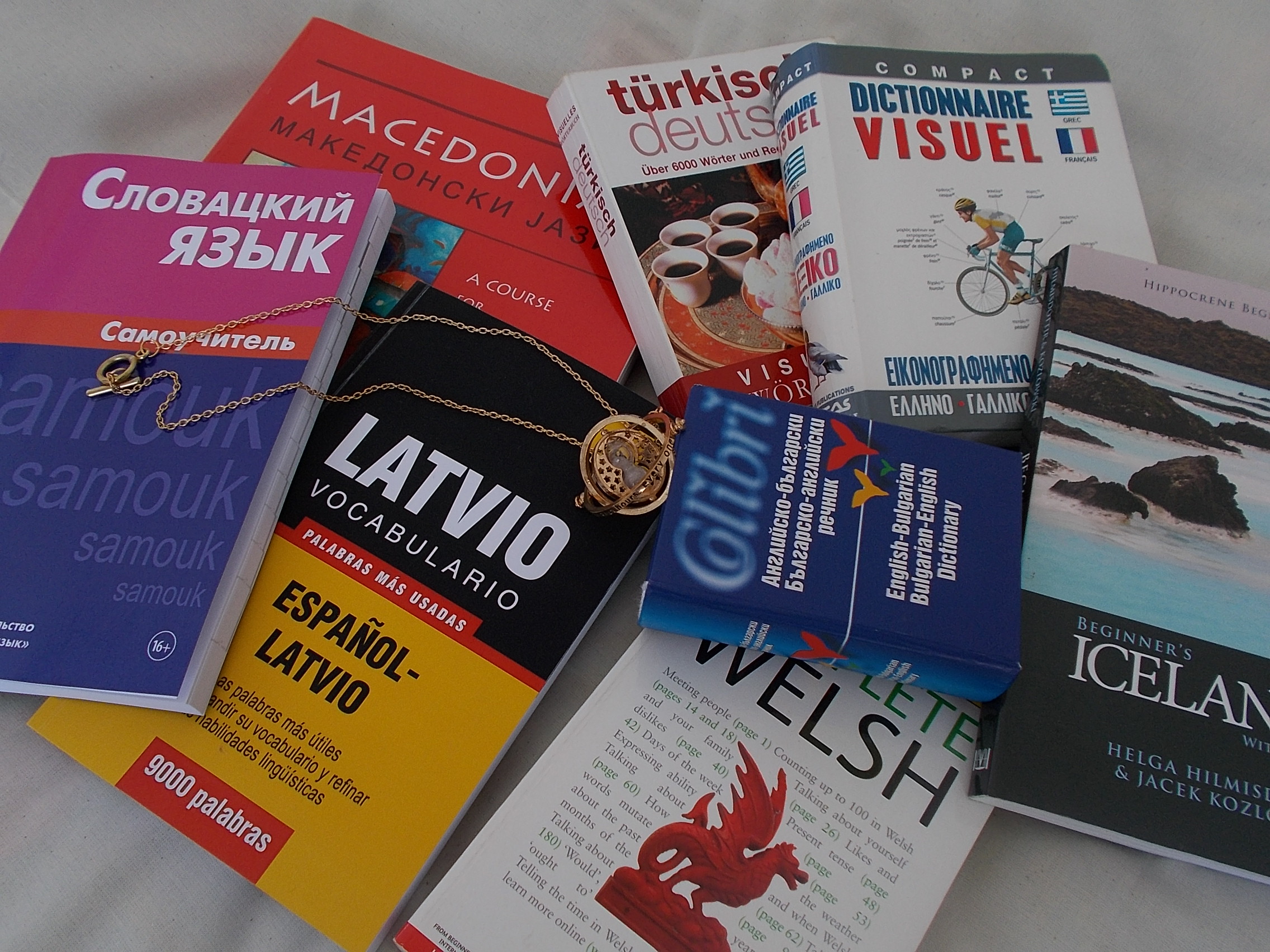Today’s blog post is about time efficiency in language learning. Learning, and keeping up, multiple languages does not necessarily take up a lot of time. Much more important for any success in language learning is a clever use of the time you have at your disposal, not the ‘free’ time you have overall each day. The secret is to use the time which would otherwise go ‘unused’ or be lost in trivial daily activities, like grocery shopping, commuting, manual activities like housework or gardening, etc. and make it available for language learning. This is actually quite easy and does not require any special skills or methods.
1. When you are doing housework, cooking or performing similar manual tasks like gardening or making crafts, etc. listen to an audio course or a course CD that accompanies a textbook. This will train your listening comprehension while you go about your daily chores.
2. When out and about, carry a list with vocabulary to be learned with you. Learn the words when you have to wait for the bus, train or other transport or when you have to stand in line at the supermarket or while waiting in a waiting room – in short, learn them during the minutes that would otherwise be ‘lost’. These will add up over time!!
3. Learn or practise two languages at the same time by using textbooks and learning materials written in a language other than your native tongue. This only works when you already speak a language at least at an upper intermediate level, or better: at an advanced level, because you will need to understand nearly everything when using these materials to learn a new language. By learning in this way, the language you already speak will be reinforced and practised while learning a new language at the same time 🙂 .
4. Follow your usual pastimes or hobbies, but do it in your target language. For example, watch that movie you want to see or read that book you want to read in your target language instead of in your native language. Read the news in your target language. So while doing these ordinary daily activities, you will practise your language skills at the same time.
These extra minutes of language learning might seem negligible or like ‘nothing’, but they will add up over time. If you just make some extra 5 minutes for your language learning available each day in this way, this will be an extra hour spent practising your target language each week! 🙂


